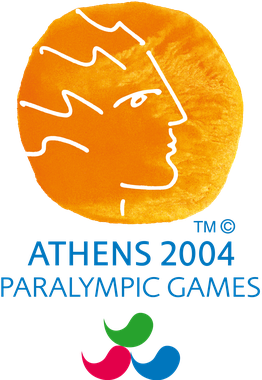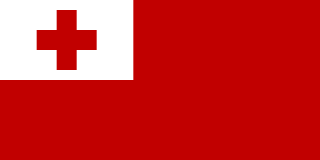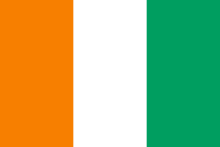
The Paralympic Games or Paralympics, also known as the Games of the Paralympiad, is a periodic series of international multisport events involving athletes with a range of physical disabilities. There are Winter and Summer Paralympic Games, which since the 1988 Summer Olympics in Seoul, South Korea, are held almost immediately following the respective Olympic Games. All Paralympic Games are governed by the International Paralympic Committee (IPC).

The 2004 Summer Paralympics, the 12th Summer Paralympic Games, were a major international multi-sport event for athletes with disabilities governed by the International Paralympic Committee, held in Athens, Greece from 17 to 28 September 2004. 3,806 athletes from 136 National Paralympic Committees competed. 519 medal events were held in 19 sports.

Egypt sent a delegation to compete at the 2000 Summer Paralympics in Sydney, Australia. Egyptian athletes won six gold medals, twelve silver and ten bronze, enabling their country to finish 23rd out of 123 on the medal table. Athletics and powerlifting were equally successful, with each sport giving 3 gold medals each to Egypt.

The United Arab Emirates started actively participating in the Paralympic community during the 1990s. They made their debut at the 1992 Summer Paralympics. Since that time, they have won several Paralympic medals. The country had their debut on the international Paralympic stage at the 1990 Stoke Mandeville Games. Some of the country's Paralympic competitors are internationally ranked. The United Arab Emirates have competed at several other Paralympic events including the Arab Paralympic Games, Asian Paralympic Games, IWAS World Games, Stoke Mandeville Games, and World Semi-Olympic Championship. The United Arab Emirates Paralympic Committee is the national organisation, gaining its International Paralympic Committee recognition in 1995 and have subsequently made winning medals and hosting events a priority.

Libya sent its largest ever delegation to the 2000 Summer Paralympics in Sydney, with three judokas, two powerlifters and a sitting volleyball team. The country's only female competitor, Ghazala M. Ali in powerlifting, was the first ever woman to represent Libya at the Paralympic Games.

Benin made its Paralympic Games début at the 2000 Summer Paralympics in Sydney. It sent a single athlete, blind runner Edouard Agboessi, to compete in athletics. Agboessi failed to make it out of the heats in the men's 100 m T11 event.

Madagascar made its Paralympic Games début at the 2000 Summer Paralympics in Sydney. They were represented by vision impaired runner Aina Onja, who finished third in his men's T11 100m heat and failed to qualify for the next round.

Australia competed at the 2004 Summer Paralympics in Athens, Greece. It was Australia's 12th year of participation at the Paralympics. The team included 151 athletes. Australian competitors won 101 medals to finish fifth in the gold medal table and second on the total medal table. Australia competed in 12 sports and won medals in 8 sports. The Chef de Mission was Paul Bird. The Australian team was smaller than the Sydney Games due to a strict selection policy related to the athletes' potential to win a medal and the International Paralympic Committee's decision to remove events for athletes with an intellectual disability from the Games due to issues of cheating at the Sydney Games. This was due to a cheating scandal with the Spanish intellectually disabled basketball team in the 2000 Summer Paralympics where it was later discovered that only two players actually had intellectual disabilities. The IPC decision resulted in leading Australian athletes such as Siobhan Paton and Lisa Llorens not being able to defend their Paralympic titles. The 2000 summer paralympic games hosted in Sydney Australia proved to be a milestone for the Australian team as they finished first on the medal tally for the first time in history. In comparing Australia's 2000 Paralympic performance and their 2004 performance, it is suggested that having a home advantage might affect performance.

Angola competed at the 2000 Summer Paralympics in Sydney, Australia. It was the country's second participation at the Paralympic Games, as the lengthy Angolan Civil War continued. It was represented by a single athlete - André Augusto, who competed in the men's 800 metre sprint, T46 category. He did not win a medal, finishing sixth out of eight in the event's single round, in 2:00.92.

Algeria competed at the 2000 Summer Paralympics in Sydney, Australia. It was the country's third participation in the Summer Paralympic Games. Its delegation consisted in six track and field athletes and two competitors in powerlifting. Sprinter Mohamed Allek, who has cerebral palsy, won all of Algeria's medals at these Games - three gold.

Burkina Faso competed at the 2000 Summer Paralympics. They were represented by one male athlete.

Kenya competed at the 2000 Summer Paralympics. They were represented by 13 sportspeople, 5 women and 8 men, at the Sydney, Australia hosted Games. Kenyan Paralympians won four medals at these games, one gold, one silver and two bronze.

Lesotho competed at the 2000 Summer Paralympics. Making their Paralympic debut at the Sydney, Australia hosted Games, they were represented by two athletes.

Nigeria competed at the 2000 Summer Paralympics, sending a 31-member strong delegation that won 13 medals, 7 of which were gold.

There were 0 female and 2 male athletes representing the country at the 2000 Summer Paralympics. Both of them competed in athletics.

Tonga participated in the 2012 Summer Paralympics in London, United Kingdom, from August 29 to September 9, 2012. Their participation marked their fourth consecutive Summer Paralympics appearance since their début at the 2000 Summer Paralympics in Sydney. Tonga was represented by the Tonga National Paralympic Committee, and was one of the 45 participating countries that sent only a single athlete. Tonga has always sent only a single athlete from Sydney 2000 to London 2012. Tonga National Paralympic Committee sent a delegation of three people, including one athlete. The sole athlete to represent the nation was ʻAloʻalo Liku, who participated in javelin and discus throw. Liku was the country's flag-bearer during the Games' opening ceremony. Tonga did not win a medal at these Games, however Liku finished with seasonal bests in both the events.
Para-athletics classification is a system to determine which athletes with disabilities may compete against each other in para-athletics events. Classification is intended to group together athletes with similar levels of physical ability to allow fair competition. Classification was created and is managed by the International Paralympic Committee (IPC), which is regularly published via its IPC Athletics Classification Handbook. People with physical, vision and intellectual disabilities are eligible to compete in this sport at the Summer Paralympics. The classification for this sport was created during the 1940s and for much of its early history was a medical condition based classification system. The classification system has subsequently become a functional mobility based one, and is moving towards an evidence-based classification system.
Paralympic Shooting classification is the shooting classification in place for the Paralympic Games to help establish fair competition. Classification is governed by the International Paralympic Committee's IPC Shooting. While there are currently three classifications, there were originally five in international competitions. People with physical disabilities as defined by the International Paralympic Committee are eligible to compete.

Ivory Coast competed at the 1996 Summer Paralympics. The country made their Paralympic debut in Atlanta, United States., and were represented by 2 male athletes.

Uganda sent a delegation to compete at the 2016 Summer Paralympics in Rio de Janeiro, Brazil, from 7 to 18 September 2016. This was the eighth appearance of the country in the Summer Paralympic Games after it debuted forty-four years prior at the 1972 Heidelberg Paralympics. Athletics track runner David Emong was the sole athlete representing Uganda in Rio de Janeiro. He took part in the men's 400 metres T45–47 competition on 8 September and did not qualify for the finals because he was fifteenth overall. Emong participated in the men's 1500 metres T45–46 event later that day and he took Uganda's first medal in Paralympic competition by coming second in the final.


















